An Efficient Guide on How To Practice Buddhism
By Ruth Jesse
January 10, 2024 • Fact checked by Dumb Little Man
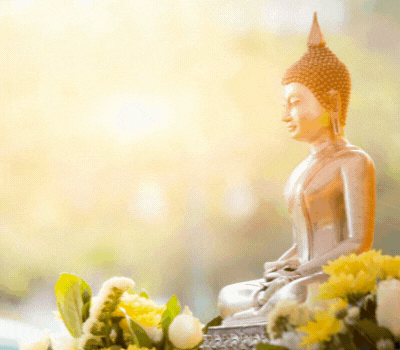
If yes, then you must have a lot of questions regarding it.
The Buddhist path has a lot of entry points. With so many teachings available, you will get overwhelmed.
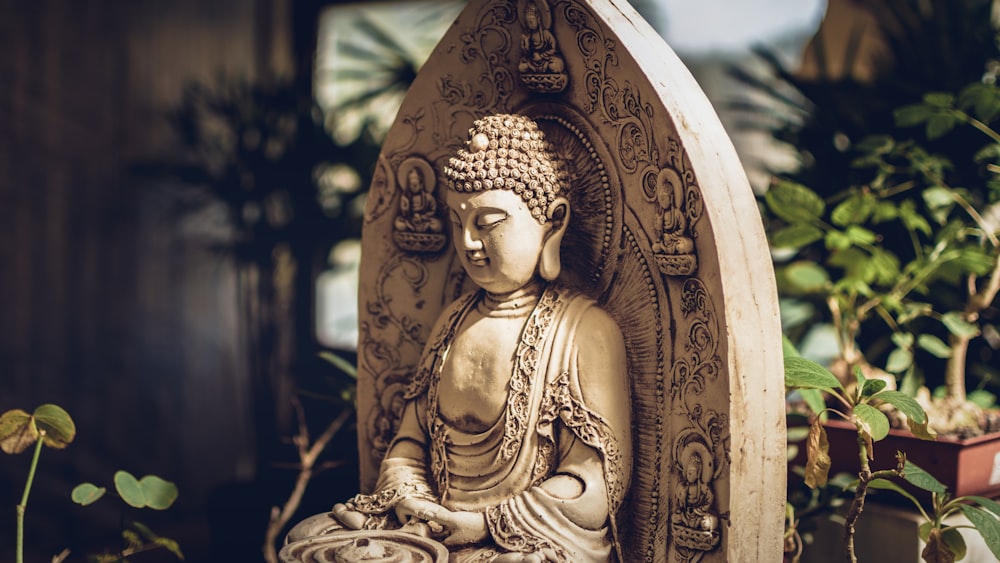
So, before you begin practicing Buddhism, it's crucial to understand this enlightening religion's beliefs and values.
Hence, we have created a complete guide that will provide you with every bit of information you need to become a real Buddhist.
So, let's get crackin'.
🏺 What Is Buddhist Practice? 🏺
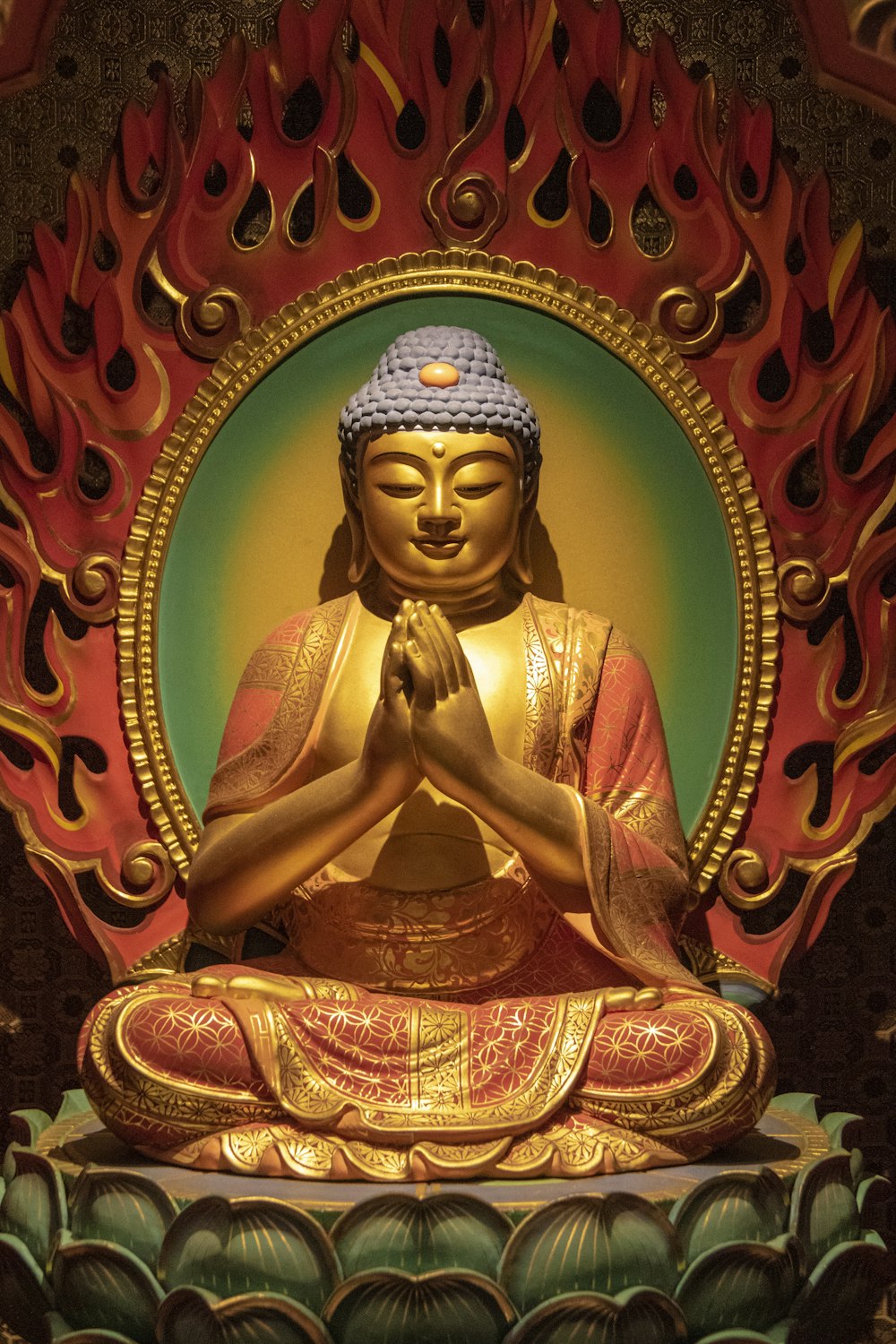
First, let's see what Buddhism is based on. Buddhism started with Siddhartha Gautama. He was born in modern-day Nepal around 2500 years ago.
Currently, he is known as the Buddha. He set on a journey to investigate awakening and discover the primary truth, Nirvana.
Buddhism is understood as a way of life by some, a religion by many, and a philosophy by others. In reality, Buddhism is a nontheistic tradition. It means that there is no prominence of a creator on any deity.
However, the traditional Buddhist scriptures have mentions of gods and deities.
Nonetheless, mediation is mainly seen as the central practice of Buddhists in popular culture. But it is only one side of the Buddha's teachings.
In Tricycle's masterpiece “10 Misconceptions about Buddhism“, they mention that many Buddhists throughout history did not practice mediation. There are many factors on the pieces and path to living a complete life than mediating a few times a day.
📿 Noble Truths Of Buddhist Teaching 📿

Buddhism is based on four common truths. These are known as noble truths as they liberate people from suffering. The four noble truths are the main schoolings of the Buddha, covering the entire Buddhist path.
Let's see what these noble truths are: teachings
1) Suffering
Life always includes sufferings in subtle and blatant forms. Even when things look fine, people always feel a hint of uncertainty and anxiety inside.
2) The Cause Of Suffering
The reason for suffering is fundamental ignorance and craving. People suffer because of the wrong belief that they are independent, separate, and solid. Hence, they focus on the word “I.”
The futile and painful struggle to maintain this misconception of ego is called samsara (cyclic existence).
3) The End Of Suffering
The best part is that obscurations are temporary. It's like clouds passing by that obscure the sun of the enlightened nature that is always present.
Thus, suffering can diminish because these obscurations can be cleansed, and the awakened mind is constantly available.
4) The Path
By practicing meditation, living ethically, and developing wisdom, you can take the journey to enlightenment. And ultimately get freedom from suffering that the Buddha's usual experience.
You can also wake up.
🔅 Seven Buddhas Of Antiquity 🔅

In the initial strata of Pali Buddhist texts, particularly in the starting four Nikayas, these seven Buddhas of antiquity are mentioned.
❶ Vipassī (the 998th Buddha of the vyuhakalpa)
In Buddhism, Vipassi is the twenty-second out of the twenty-eight Buddha's mentioned in chapter 27 of Buddhavamsa. He was succeeded by Sikhi Buddha and preceded by Phussa Buddha.
❷ Sikhī (the 999th Buddha of the vyuhakalpa)
According to Buddhist mythology and Buddhavamsa, Sikhi is the twenty-third Buddha in the list of twenty-eight Buddhas. He was succeeded by Vessabhu Buddha and preceded by Vipassi Buddha.
❸ Vessabhū (the 1000th and final Buddha of the vyuhakalpa)
Vessabhu comes on the twenty-fourth number. Getting birth in the pleasance of Anoma, his father was Khattiya Suppatita, and his mother was Yasavati.
❹ Kakusandha (the first Buddha of the bhadrakalpa)
Kakusandha is one of the ancient Buddhas. His biography is narrated in chapter 22 of the book Buddhavamsa – the books of Pali Canon. He is the twenty-fifth Buddha on the list.
❺ Koṇāgamana (the second Buddha of the bhadrakalpa)
Koṇāgamana Buddha is also known by the name Kanakamuni in Sanskrit. He is one of the oldest Buddhas whose life is chronicled in Buddhavamsa's 23rd chapter.
❺ Kassapa (the third Buddha of the bhadrakalpa)
Kassapa Buddha is also known as kasyapa in Sanskrit and is also among the oldest Buddhas. And his biography has been chronicled in Buddhavamsa's chapter 24.
❼ Gautama (the fourth and present Buddha of the bhadrakalpa)
Siddhartha Gautama is the famous Gautama Buddha. Gautama Buddha was a mendicant, monk, philosopher, sage, religious leader, and teacher, and Buddhism was founded on his teachings. He taught and lived in the northeastern part of ancient India between the 6th and 4th BCE.
Proven Dating Courses that works like a charm:
| Website | Dating Courses | Description |
|---|---|---|
 | The Tao of Badass | 7 Simple scientific tricks to have any woman you want |
 | How To Find The Man Of Your Dreams | Attract the Man of Your Dreams -- and Receive a Marriage Proposal in 12 Months or Less |
 | Text Chemistry | Learn a special kind of text message that you can send a man right now that will unlock a hidden, ravenous desire for you. |
 | The Devotion System | Learn how to avoid making these attraction-killing errors and reveal a powerful set of words I call a "Devotion Sequence" that make a man lust uncontrollably for you (even if he says he's not interested). |
◉ Does Buddhism Believe In A God? ◉
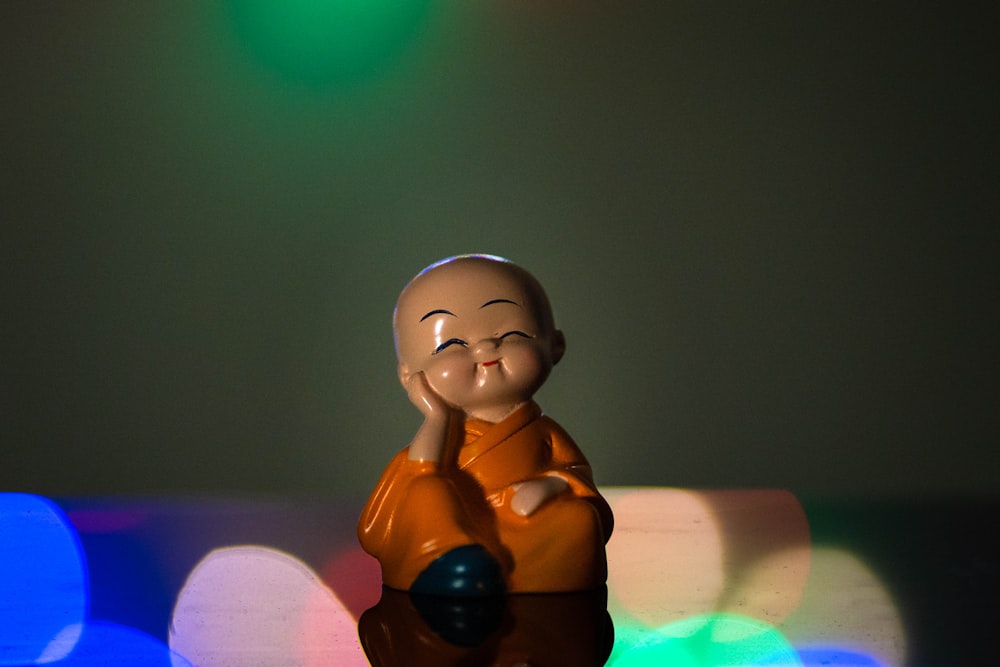
No, Buddhists don't believe in a God. There are many reasons behind it in Buddhist traditions.
Like many contemporary psychologists and sociologists, the Buddha believed that religious ideas, particularly the idea of God, have their origin in fear.
❂ An ancient man witnessed himself in a troublesome and hostile world. They had the following fears in them ❂
▶ The fear of being endangered by animals
▶ The struggle of finding food
▶ Trying to avoid disease, injury, and natural disasters like lightning or thunder
Unable to find a place of security, they made the idea of God to get peace in good times and courage in difficult times. To this day, people get more religious when they are confronted with a problem. We often hear that they believe in God or Gods because it gives them the strength to deal with life.
And they will tell you that they believe in a God just because they prayed in trying times, and it was answered.
This does back the Buddha's teaching that the idea of God is made because of frustration and fear. He taught the followers to understand fear, decrease desires, and courageously accept things that are not in their control. He substituted fear with rational belief rather than irrational.
The second reason Buddhism does not believe in God is that there is no evidence supporting the idea. Many religions are claiming that they have preserved the words of God in holy books. They understand God's nature and that God exists. Some religions only believe in their God and don't believe in the existence of other gods.
On the other hand, some claim that God is a male, some think it's a female, and others believe it's neuter. They are satisfied that there is a lot of evidence to prove their claims, but they laugh at the beliefs of others. Buddhists don't believe in a thing until they see evidence of it.
The third reason Buddhists don't believe in a God is that they think that it's not necessary. Some feel that belief in a God is essential to explain the origin of the entire universe. Some think that belief in God is vital to have a meaningful and happy life. While others believe that God's power is critical for humans because they are weak. People can't help themselves.
But Buddha believed humans could purify their minds, develop unlimited compassion and love, and perfect understanding. So he moved the attention from the heavens to the hearts of his people. Buddha encouraged people to find solutions to their problems by understanding themselves.
Do you wanna know why the old saying “an ounce of prevention is worth a pound of cure” should become your daily mantra if you truly care about how your health will progress in the days ahead? To know more, CLICK HERE!
⦿ What Are The Four Great Bodhisattva Vows? ⦿

To understand Buddhism in-depth, let's dig a little deeper into the Four Great Bodhisattva Vows. These are also known as the four noble truths:
1) Work Towards Ending The Suffering Of Others
The Buddhist teachings include “the Four Noble Truths,” which teach that life and suffering are intertwined.
Sufferings can come to an end by disrupting life's cycle: death, birth, and rebirth.
Work towards helping others come out of sufferings, including both physical and mental. To get there, reach nirvana, which can only be achieved by following the Middle Way, also known as the Noble Eightfold Path.
2) Follow The Noble Eightfold Path
Another one in the four noble truths in the Noble Eightfold Path leads to nirvana. It is the state of bliss in which sufferings don't exist.
⍟ Instead, it has eight lessons which are ⍟
˃ Right Action, Right Speech, Right Livelihood (The Five Precepts)
˃ Right Mindfulness, Right Concentration, Right Effort (Meditation)
˃ Right Understanding, Right Thought (Mindfulness, Meditation, and the Five Precepts)
A true Buddhist follows these eight lessons to achieve the path of righteousness.
3) Cut Ties To Desire And Need
For most of our life, we are dictated by our wants and needs in everyday life. We want the shiniest and latest car, the biggest mansion and much more. But these cravings of material goods are totally against everything Buddhism is based on.
So, according to four noble truths, you will have to let go of these worldly desires.
4) Lifelong Learning
Never ever believe that you have learned everything. Learning is a lifelong practice. The more you learn, the more enlightenment you get.
Particularly, learn the dharma and how it is linked with suffering.
❣ Living With the Five Precepts ❣

The Five Precepts of the Buddhist teachings must be followed to get the state of enlightenment or nirvana. This is the ultimate goal of Buddhists.
These are very different from the commandments that Christians follow. Hence, these are not the regulations and rules laid down by God. Instead, these are fundamental, lifelong undertakings you have to live by to become the best version of yourself.
By following these five precepts, you can get enlightenment and have a prosperous life.
Here are the Five Precepts that you will need to follow:
1) Do Not Kill
This is the first precept that all Buddhists have to follow. It applies to both animals and humans. Thus, it means that Buddhists shouldn't take anyone's life. It's the key of practicing Buddhism.
Most Buddhists are vegetarian by choice to fulfill this precept. They don't want to break the number one rule by killing an animal for food. Many perceive it as a principle to end all kinds of wars, and many apply it in the same sense.
2) Do Not Steal
The second precept for practicing Buddhism involves refraining from taking what doesn't belong to you. It's usually known as stealing, and it's a straightforward way of endangering others and causing suffering. Do not steal is also implemented to discourage exploitation and using people for your benefit.
Such irrational acts are not in line with the Buddhist teachings of morality.
3) Do Not Abuse Or Exploit
It's the third precept of practicing Buddhism to reform from sexual misconduct or the inappropriate use of senses. In spiritual tradition, it's mainly applied to things like being unfaithful or engaging in adultery. Buddhists don't commit any kind of sexual offenses or overindulge in sex.
Hence, Buddhist people and Buddhist monks who follow this faith seriously, usually take vows of celibacy. They feel that sex is a distraction from the rightful teachings of enlightenment. It's also a way of making sure you adhere to the third and the most important precept.
4) Do Not Lie
The fourth precept is related to refraining from a wrong speech in Buddhist spiritual tradition. It's mainly interpreted as misleading, lying, and gossiping.
Buddhists who follow this precept have to say things that are considered valuable and well-meaning. Speech is related to listening. And when you follow this precept, you should also be a good listener and avoid talking out of turn. It causes suffering through interactions and speech.
5) Do Not Use Drugs
The fifth and the last precept is that you should not use any drugs that cloud your judgment. Thus, it means that you can't use alcohol, drugs, and other intoxicants because they hinder your expedition towards enlightenment. It only causes suffering.
The main reason for abstaining from drugs is to have an alert and clear mind. A mind that is focused on reaching enlightenment and meditation. A few Buddhists also replicate this on their own thoughts and implement this precept to mindfulness.
If one has a purely clear mind, they have to be aware of their motivations, thoughts, feelings, and action. And it is only possible if you practice mindfulness.
What is mindfulness? It's a technique that has its roots in Buddhism. It's the ability to be aware of your own feelings, thoughts, and sensations. Hence, residing in the present and clearing your mind of different thoughts.
Consequently, it can be practiced by meditating, which is another critical attribute of Buddhism and can help people reach enlightenment. Thus allowing you to start Buddhist practice and follow basic daily Buddhist practice.
☁ Tips On How To Practice Buddhist Teachings ☁

With the facts and beliefs explained, let's now look at some tips that can help you practice Buddhism. It will help you answer your question, how to practice Buddhism in-depth and follow basic Buddhist teachings:
1) Gather Merit
Whatever the case may be, people who gather merit or positivity and those who don't are very different.
You must be pondering what do we mean by gathering merit?
Firstly, it is to get the ability to cultivate compassion and to have an altruistic motivation, and do things that help others. It assists people in a good way, such as providing advice and being generous, patient, disciplined, etc. Therefore, it is essential to develop these types of qualities and do things sincerely.
Furthermore, someone who thinks of themselves as Buddhist believes in “practicing generosity downward” and “making offerings upward.” This means that a person must make offerings upwardly to their objects of refuge. These objects of refuge are spiritual teachers, Buddhas, and sangha – the community's practitioners.
Many have found the one they Love through these popular dating sites! Create an account with the one that best fits you Today! (Don’t leave your love life for tomorrow)
| Website | Dating Site(s) | Description |
|---|---|---|
 | eHarmony | A Trusted Online dating site for singles. |
 | Sugardaddie | A dating site for attractive single women and successful men who have financial security and confidence. |
 | be2 is one of the leading names in the online dating space with extreme brand recognition and a high quality user base of singles looking for that special someone. Promote through superb demographically targeted and themed landing pages. | |
 | C-Date is the leading casual dating site for those who beside their career want to live their passionate fantasies with someone who shares the same spirit. It is a fantastic and well-established casual dating offer, which works on both male and female audiences. | |
 | Singles50 is one of the world's leading dating agencies for single women and men over the age of 50. We help you find the right partner for a fulfilling, long-term relationship. Our objective is to show that love can happen at any age! | |
 | Academic Singles (Mobile) Academic Singles (Desktop) | Academic Singles is one of the leading platforms for singles with higher education in the search for love. We are specialized in connecting single men and women, taking their affinity into account. Our objective is to help you find your perfect match! |
Simultaneously give “downwardly” to sentient beings. Practice generosity and make offerings regularly.
Through such types of actions that are made on pure motivation, people gather merit. Hence, the result is that they can encounter fewer hindrances and obstacles in this life, they get their aims fulfilled, and things work out smoothly for them.
3) Seek Out Good Role Models
Other than gathering merit, Buddhists also need good role models who they can follow. For example, the Buddha Shakyamuni passed into Parinirvana 2500 years ago, yet his teachings remain upheld and embodied in today's qualified and genuine dharma teachers.
Such teachers are fantastic role models for Buddhists. All Buddhists follow their teachings and examples. So, if you want to practice Buddhism, find yourself a kind-hearted role model. Someone with exceptional qualities you can look up to and emulate. Your shared role model will obviously be Buddha Shakyamuni.
Depending on such role models, you can transform and mold your behavior and character into something positive. As a result, you will encounter fewer difficulties.
Such beliefs are exceptionally vital for dharma practitioners. Since these practitioners need to unwind the true meaning and intent of Buddha's teaching – the natural, innate state, you need to understand this and see how to train in it. You can follow a good dharma teacher as an example. Once you follow their teachings, it will enhance and boost your understanding of the natural state.
Get more tips on how to Fall asleep as soon as you lay your head on your pillow, instead of spending hours staring at the shadows cast by street lights on your ceiling because you’re worried about what tomorrow brings. CHECK THIS OUT!
3) Approach All Endeavors with Intelligence
Whichever activities you are carrying on in your life, whether spiritual or mundane, do them with intelligence.
Ask yourself, “Ok, which qualities are required to fulfill this role? How should I do it? Which details are needed?”
Acquire all the needed qualities and skills to listen and learn from the people around you. Then change yourself accordingly. As far as learning is concerned, you know how you can do this.
However, it can be hard to listen to and learn from people, but you need to do it. And lastly, change yourself. If you don't have certain required qualities, remember to acquire them. If you see that you have specific faults, transform these faults into good qualities. Don't ignore them. Otherwise, you will never see the change you want.
As far as dharma is concerned, use the intelligence of understanding the natural state and never drift from the motivation of bodhicitta – the observance of enlightenment.
⍟ Nowadays, most practitioners lack bodhicitta. At times you will question yourself. The below questions might arise in your mind ⍟
✎ Can I really achieve enlightenment?
✎ Is it actually possible?
✎ Will it help others and me?
The state of Buddhahood or enlightenment is the main benefit, the ultimate bliss, peace, and unsurpassable way to benefit others and oneself.
With that being said, develop the determination and wish to get enlightenment. This is what bodhicitta – the mind of enlightenment is. So as followers receive honest dharma teachings intelligently from suitable teachers. And reflect upon their teachings genuinely while putting them to good use.
4) Nurture Dignity and Confidence
At times we come across challenges and problems in our monotonous lives, or we face failures.
In such times, don't let these challenges set you back or rob your confidence or dignity. Instead, approach the situation in a positive way.
Imagine, “Ok, I didn't prosper here. Why is that? What did I do wrong? What is missing? And consider everything as an experience. Then begin removing the flaws and faults that resulted in the problem so that you can succeed the next time.
Thus, feel confident: Yes, I can get enlightenment. I can help others, including your family. I can assist the sangha and benefit sentient beings. I can achieve it, and I can live a meaningful and joyful life. Nurture your inner dignity and your confidence in this way, even while facing challenges.
This type of dignity is a paramount quality, and for practitioners, it is indispensable. Kyabje Tulku Urgyen Rinpoche says that if you don't have dignity, you can't succeed in practicing dharma, especially meditation.
Why? Because dignity is a type of courage, an unwavering and decisive certainty. It can't be a hesitant or shaky state of mind. You can't have thoughts like, “Oh, I don't know if meditation will be beneficial for me.” You absolutely can't do this.
A few people know the dharma, they comprehend it, but they still question things. It's a visible sign of a lack of confidence. Obviously, if you can't understand something or don't know it, you can ask questions, and you should do that.
But if you see yourself questioning and feeling doubts about things you are already aware of, it's clear that you don't have dignity.
What is the solution to this, you ask? How can you develop dignity?
Appeal the Buddhas and the supreme ones such as dharma, Buddha, and sangha. This is the right approach that is entirely mutual in all Buddhists.
If you are one of the Vajrayana practitioners, also appeal to your supreme yidam deity and gurus. And train in getting divine dignity. Make supplications in whichever approach you pick to get inner dignity. All these will show you how to practice Buddhism and follow the noble eightfold path.
۞ Can Anyone Become A Buddhist And Follow Meditation Practice? ۞
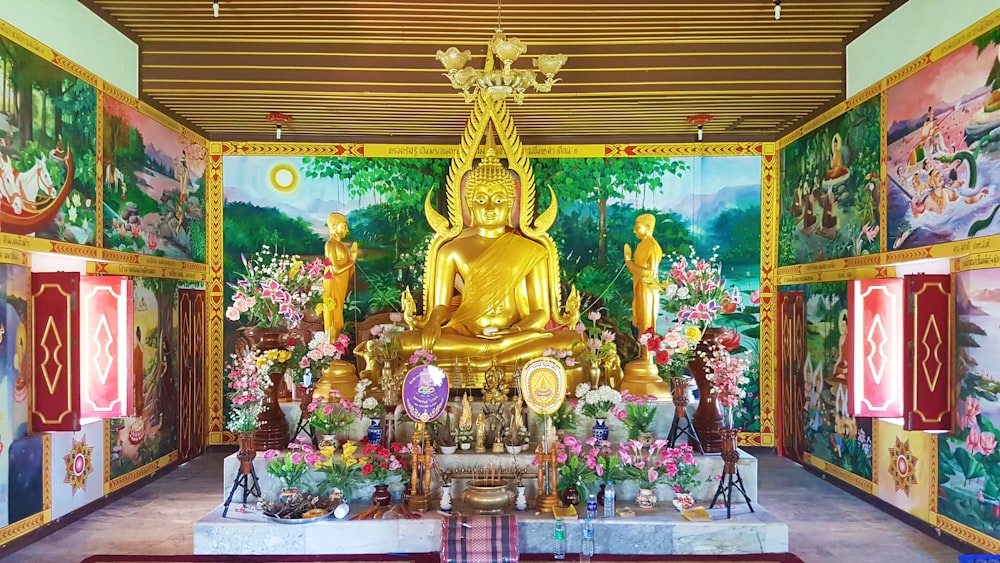
Yes, everyone is free to adopt the path of Buddhism. For that, you have to start living in the Triple Gem and then follow a ceremony. During that ceremony, you will have to take a vow stating that you will uphold the five precepts, not to kill, steal, engage in sexual activity, lie, or take drugs.
You will have to follow the right path, no matter how hard it is. It requires determination, firm belief, and steadfastness. Otherwise, it will be pretty easy for you to drift away from the path of enlightenment.
To get some inspiration, read up on the lives of all the Buddhas and how they did meditation practice. It will reveal how to get rid of inner desires that lead to failure. Do ample research and then act on this belief. The more you know about Buddhism, the easier it will be for you to adapt to this lifestyle and follow the noble eightfold path.
ᕯ Conclusions ᕯ
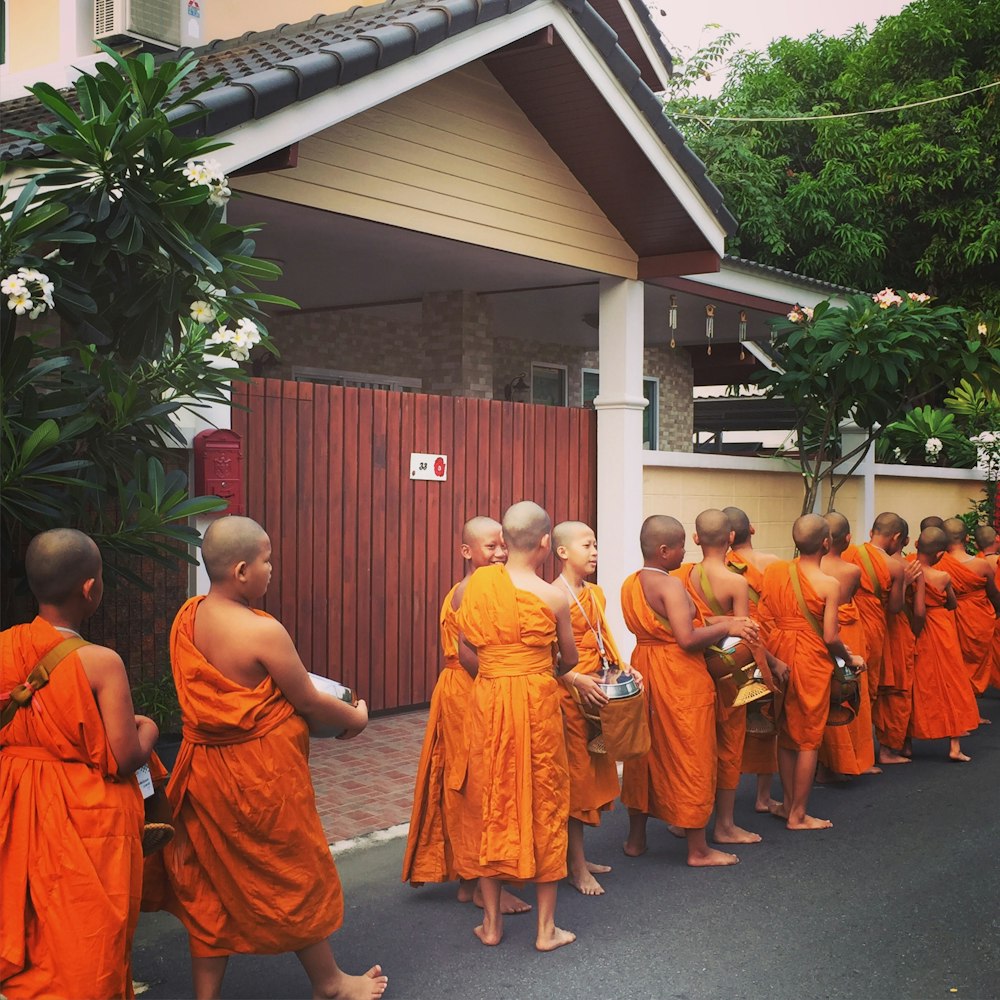
We hope our article answers your question – how to practice Buddhism?
If you have your mindset on following Buddhist practice, you need to stay firm and determined. It will be challenging at the start; you will come across many desires. But don't let it change your beliefs. If you stick to it, you will get to the point of enlightenment and do meditation practice.
Hence, don't let minor setbacks drift you away from your noble eightfold path. You can do this, and you will succeed at it.
Good luck, our Buddhist friend!
❊ Relevant Questions ❊
Q: What is the holiest site in Buddhism?
A: There are four main Buddhist holiest sites. These pilgrimage sites mean a lot to Buddhists. The four main sites are Bodh Gaya, Lumbini, Sarnath, and Kushinagar.
Q: Where are most Buddhist located?
A: Many of the world's Buddhists live in South and East Asia.
✺ Here are the two main countries and the percentage of Buddhists living in them ✺
✤ Thailand 13%
✤ Japan 9%
The other 1.4% of Buddhists live in countries outside Asia.
Q: What is the main religious book of Buddhism?
A: The Buddhist canon has Sutras. These are the teachings and words of the Buddha. In addition to this, there are a few noncanonical Buddhist texts that give supplementary teachings, commentary on transitional states, and rules of conduct. The Mahayana Sutras, the Tripitaka (Pali Canon), and the Tibetan Book of the Dead are the primary noncanonical Buddhist texts.
The Pali Canon is also recognized as “the word of Buddha,” which consists of a few of the Buddha's discourses. But it also has the teachings of all the pupils. Various sects of Buddhists follow noncanonical and canonical scriptures to different degrees.
Learn the way of leveraging your commitment in one area of your life to raise your “level of participation and success” in another. CLICK THIS TO KNOW MORE!
Ruth Jesse
Ruth is a life coach who specialises in relationships and career development. Outside work, she loves writing novels and guides for personal development.




